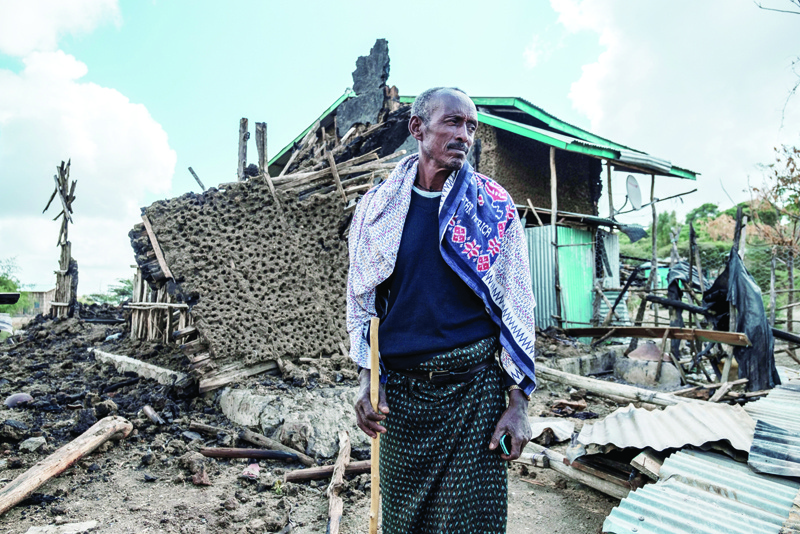
ADDIS ABABA: A total of 207 people were killed in a Wednesday attack by gunmen in western Ethiopia, the country's Human Rights Commission (EHRC) said, more than doubling a previous count. The independent government body had on Wednesday said 100 people were killed in their sleep and crops burned in a pre-dawn assault in the Metekel area of the Benishangul-Gumuz region.
"133 of the victims were adult men and 35 were adult women. Seventeen children, one of whom a six-month-old baby, and 20 elderly persons were killed," the EHRC said in a statement posted to Twitter late Friday. Mostly inhabited by ethnic Shinasha, Oromo and Amhara people-the last two making up Ethiopia's most numerous groups-the Metekel area has suffered a string of deadly attacks in recent months.
Local leaders blame ethnic Gumuz people for the violence. Following Wednesday's attack, "effort is underway to identify the victims with the help of survivors and identity cards," the EHRC said. The body repeated its appeal for "relevant authorities to provide urgently humanitarian assistance to the victims and persons displaced by the attack."
It added that around 10,000 had fled the Bekuji Kebele area and made for the city of Bulen, around 40 kilometers (25 miles) away, which is already sheltering "thousands of displaced persons". "Bulen city is overwhelmed. The roads leading to the city are still teeming with displaced persons and their herds of cattle," one eyewitness told the commission. Regional authorities said on Thursday that troops had killed 42 armed men alleged to have taken part in the massacre, without giving details about their identities.
"The massacre in the Benishangul-Gumuz region is very tragic," Ethiopian Prime Minister Abiy Ahmed said in a Twitter post on Thursday, conceding the government's efforts to solve the problem "had not yielded results". In October, he had said that fighters "armed and trained" in Sudan's neighbouring Blue Nile state were behind the violence and urged Khartoum to tackle the problem.
Abiy claimed that the latest attack had been aimed at "dividing the significant force" deployed to the country's dissident northern Tigray region. There is no known link between the violence in Benishangul-Gumuz and military operations in Tigray. Thousands have been killed in the Tigray conflict, according to the International Crisis Group think tank, and more than 50,000 people have fled over the border into Sudan.
Elections
Ethiopia will hold legislative and regional elections on June 5 next year, the electoral commission said Friday after polls scheduled for 2020 were delayed by the coronavirus pandemic. The cancelled elections were a factor that stoked tensions between Prime Minister Abiy Ahmed and the dissident northern Tigray region, which ultimately saw him dispatch federal troops there in a November military offensive that left thousands dead and created tens of thousands of refugees.
The elections in Ethiopia, Africa's second most populous country with some 110 million people, are largely seen as an important political transition process announced by Abiy, last year's Nobel Peace prize winner. Abiy, who came to power in 2018, had promised free, fair and democratic elections in 2020. The elections were scheduled for August 29 but the election commission deferred them indefinitely after the outbreak of the coronavirus pandemic. The tenure of both the parliament and Abiy-which was due to expire in October-was then extended. - AFP

